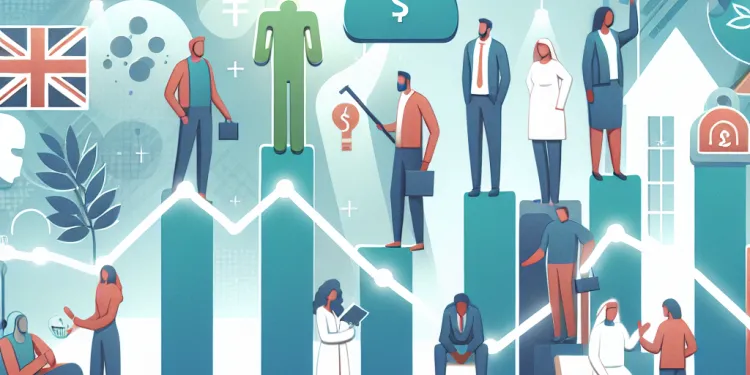
Find Help
More Items From Ergsy search
-
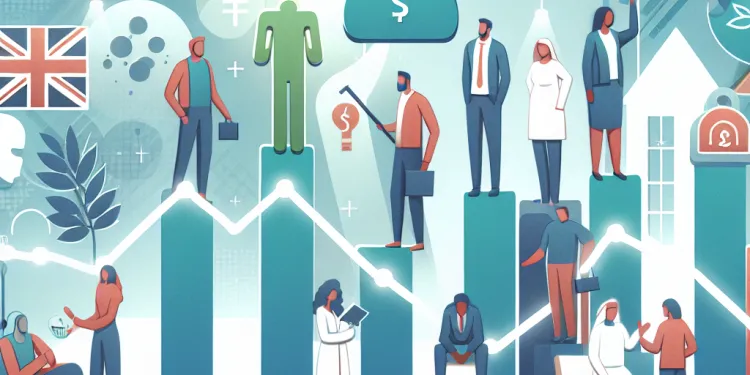
Mental Health Services Struggle to Cope Amid Record Demand
Relevance: 100%
-

Mental Health Support Services in the UK
Relevance: 66%
-

Current Challenges in Youth Mental Health Services
Relevance: 65%
-
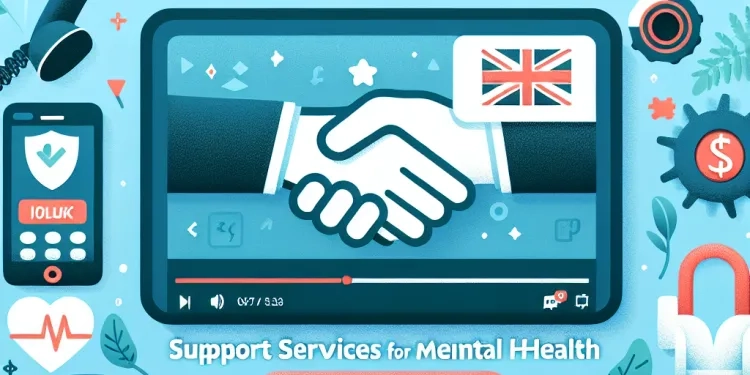
Support Services for Mental Health Amid Economic Uncertainty
Relevance: 60%
-

Navigating Mental Health Services for Children and Adolescents
Relevance: 59%
-

New Report Highlights Gaps in Mental Health Services for Welfare Recipients
Relevance: 52%
-

Accessing Mental Health Support Resources in the UK
Relevance: 50%
-

Mental Health Support Resources in the UK
Relevance: 50%
-

Mental Health Resources for Families
Relevance: 50%
-

NHS Unveils Revolutionary Mental Health Support Initiative
Relevance: 47%
-
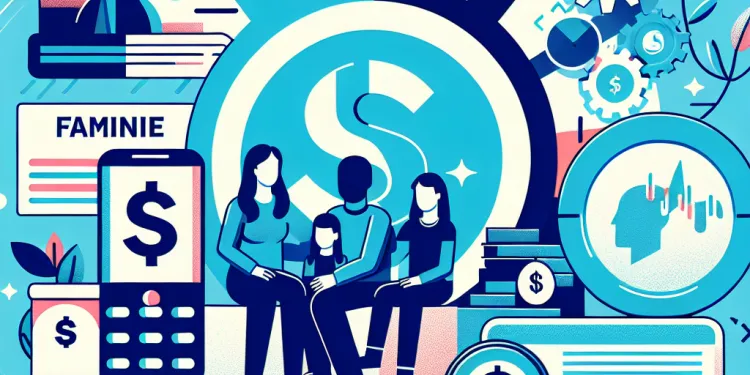
Advancements in Mental Health Resources for Families
Relevance: 47%
-
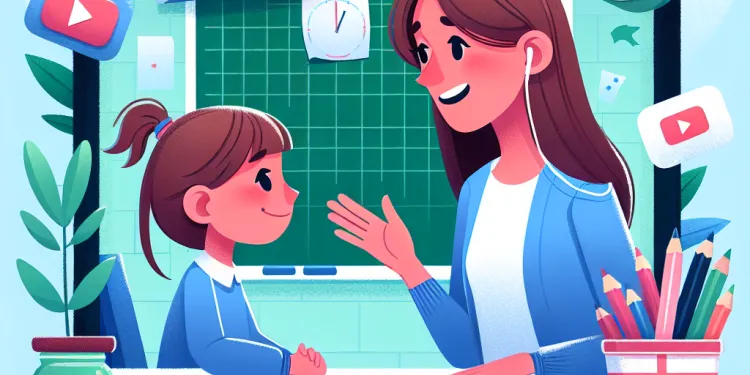
Understanding Mental Health in Children
Relevance: 46%
-
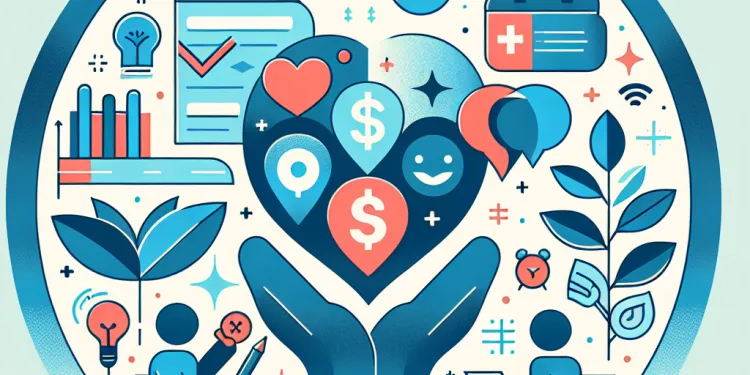
Mental Health Support for Families: Resources and Strategies
Relevance: 46%
-

Mental Health Support for Families: Resources and Helplines
Relevance: 46%
-

Mental Health Support Resources for Families
Relevance: 45%
-

NHS-led Provider Collaboratives: improving mental health, learning disability and autism services
Relevance: 45%
-

Mental Health: Laura's Story | NHS
Relevance: 45%
-

How are health services provided in prison?
Relevance: 45%
-
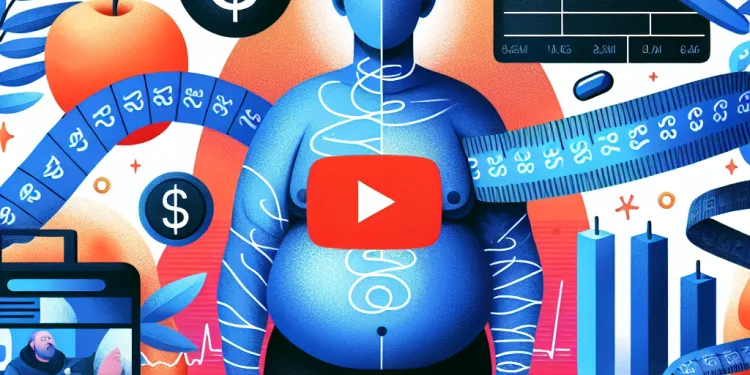
What is the impact of obesity on mental health?
Relevance: 43%
-

Mental Health Support for Families: Resources and Guidance
Relevance: 43%
-

Local Councils Struggle with Increasing Demand for Welfare Support
Relevance: 43%
-
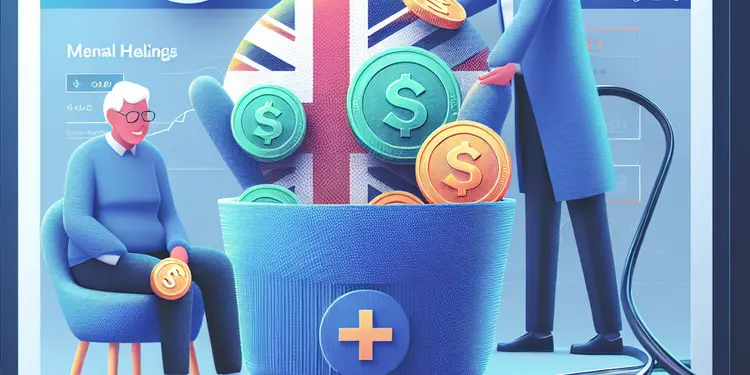
What mental health resources are available for seniors?
Relevance: 42%
-

Tackling Youth Mental Health: Community Initiatives and Solutions
Relevance: 41%
-

How does the loneliness epidemic impact mental health?
Relevance: 41%
-

Mental Health Support for Families - Latest Resources and Guidance
Relevance: 41%
-
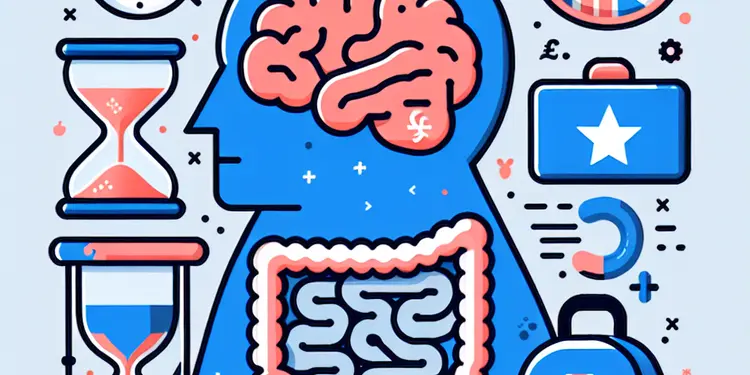
Can gut health affect mental health as one ages?
Relevance: 41%
-

Can primary care support workers access mental health support?
Relevance: 41%
-
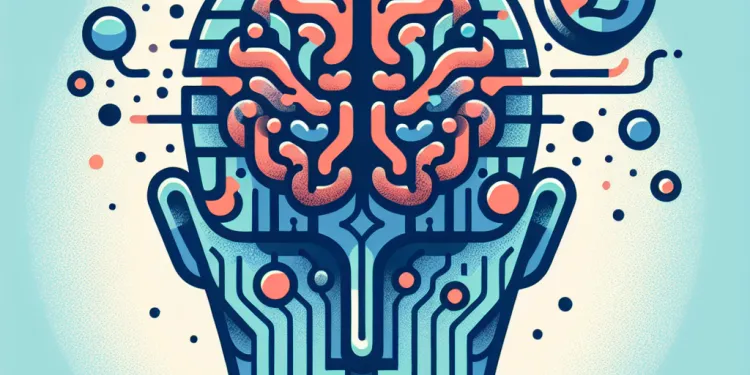
Can concussions lead to mental health issues?
Relevance: 40%
-

How does sugar impact mental health?
Relevance: 40%
-

How do eating disorders affect mental health?
Relevance: 40%
-

New Mental Health Strategy Launched to Address Youth Anxiety Epidemic
Relevance: 39%
-

Short Films About Mental Health - Trauma PTSD
Relevance: 39%
-

Mental Health Impact of Cost of Living Crisis and Support Resources
Relevance: 39%
-

Can mixed exercises improve mental health?
Relevance: 39%
-

Can relationship problems be resolved to improve mental health?
Relevance: 39%
-

How does binge drinking affect mental health?
Relevance: 39%
-
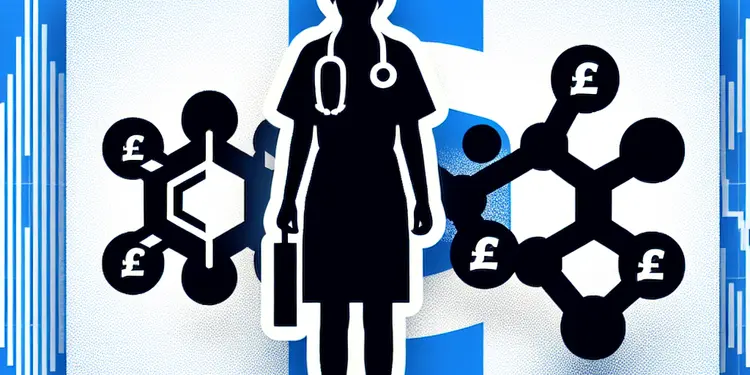
Can ketamine be prescribed for mental health conditions?
Relevance: 38%
-

What is the role of mental health assessments in indefinite sentences?
Relevance: 38%
-

Essential Tips for Mental Health and Well-Being Amidst Rising Living Costs
Relevance: 38%
-

NHS to Expand Digital Health Services to Reduce Appointment Backlogs
Relevance: 38%
Introduction
Mental health services across the UK are encountering unprecedented levels of demand. The combination of the COVID-19 pandemic, economic uncertainty, and societal pressures has intensified the strain on these essential services. As a result, mental health providers are grappling with the challenge of meeting the needs of a growing number of individuals seeking support, treatment, and care.
Current Challenges
While mental health awareness has increased, translating this awareness into adequate services remains a significant hurdle. Many mental health trusts in the UK have reported long waiting lists, with patients sometimes having to wait months for an appointment. This delay can exacerbate existing conditions and lead to further deterioration in individuals' mental health.
Staff shortages also compound these issues; the NHS has faced difficulties in recruiting and retaining mental health professionals. The increasing demands on existing staff have led to burnout and high turnover rates, further disrupting service provision.
Impact on Individuals
The strain on mental health services has a direct impact on individuals seeking help. The lack of timely and adequate support can lead to severe consequences for people experiencing mental health crises. Without prompt intervention, individuals may experience worsening symptoms, which can affect their daily lives, relationships, and overall wellbeing.
Young people, in particular, have been significantly affected. The pandemic disrupted education and social interactions, contributing to increased anxiety and depression among children and teenagers. Schools struggling with their own resource constraints are often unable to provide the necessary support, pushing more young people into an already overburdened health service system.
Measures and Solutions
To address these challenges, several steps have been proposed by mental health charities and professionals. Increasing funding for mental health services is essential to expand resources, hire additional staff, and reduce waiting times. Additionally, integrating mental health services more effectively with primary care can help identify and address issues sooner, preventing conditions from worsening.
Investment in digital mental health platforms has also been suggested as part of the solution. These platforms can provide immediate access to support through online counseling and peer support networks, taking some pressure off face-to-face services.
Conclusion
The mental health crisis in the UK is a pressing issue that requires concerted efforts from government, health providers, and the community. While the challenges are significant, a coordinated approach involving increased investment and innovative solutions can help improve access to mental health services. Ensuring that individuals receive the right support at the right time is crucial for fostering a healthier, more resilient society.
Introduction
Mental health services in the UK are very busy. COVID-19, money problems, and life's pressures have made it hard for them to help everyone. More people are asking for help, and it's tough for the services to do their job.
Current Challenges
More people now know about mental health. But, there are not enough services to help everyone who needs it. Many people have to wait a long time to see a doctor. Waiting can make people feel worse.
There are not enough doctors and nurses. The NHS finds it hard to find and keep these workers. The workers are very tired, and many leave their jobs. This makes it even harder to help people.
Impact on Individuals
People who need help with their mental health can suffer if they don't get support quickly. They might feel much worse and struggle with life and friendships.
Children and teenagers have been hit hard. COVID-19 stopped them from going to school and meeting friends. This made them feel worried and sad. Schools also don't have enough people to help, sending more kids to the busy health services.
Measures and Solutions
Many ideas can help fix these problems. Giving more money to mental health services can help hire more staff and see people faster.
Using technology can also help. Online counseling and support groups can help people quickly and take pressure off busy doctors and nurses.
Conclusion
Helping people with mental health in the UK needs everyone to work together. The government, health services, and the community must help. More money and new ideas can make it easier for people to get the help they need when they need it. This will make everyone healthier and stronger.
Frequently Asked Questions
Why is there a record demand for mental health services?
The demand has surged due to various factors, including increased awareness, societal stressors, and recent global events like the pandemic.
What challenges are mental health services facing due to high demand?
They are facing issues such as long wait times, staffing shortages, and limited resources.
How long are the wait times for mental health services?
Wait times can vary widely but are often several weeks to months due to the high demand.
What are the most in-demand mental health services?
Counseling, therapy sessions, and psychiatric evaluations and treatments are highly sought after.
Are there specific groups more affected by the increase in demand?
Yes, groups such as youth, frontline workers, and those experiencing grief or financial stress are particularly affected.
What steps are being taken to address the demand for mental health services?
Efforts include increasing funding, hiring more mental health professionals, and expanding telehealth services.
Is telehealth an effective solution to meet mental health needs?
Telehealth has proven effective for many, providing greater accessibility and flexibility, though it may not suit every case.
What are the consequences of delayed mental health care?
Delays can lead to worsening symptoms, increased risk of crisis, and greater strain on emergency services.
What role does public awareness play in mental health service demand?
Greater awareness and reduced stigma have encouraged more people to seek help, contributing to the increased demand.
How are mental health professionals coping with the increased workload?
Many are experiencing burnout, leading to calls for better support and resources for practitioners.
What government measures are being implemented to support mental health services?
Governments are increasing funding, improving service integration, and promoting mental health education and awareness.
Are there any innovative approaches being used to address mental health demands?
Innovations include digital mental health apps, peer support networks, and community-based mental health initiatives.
How has the COVID-19 pandemic specifically impacted mental health service demand?
The pandemic has increased stress and isolation, exacerbating mental health conditions and significantly driving up service demand.
What resources are available for immediate mental health support?
Resources include crisis hotlines, online support groups, and emergency rooms for acute crises.
What impact does the mental health professional shortage have on service delivery?
The shortage leads to longer wait times and limits access to qualified care, impacting the quality of services.
What are community-based mental health services?
These are services provided within the community, focusing on accessibility and tailored support for local needs.
How can individuals contribute to improving mental health awareness?
By participating in awareness campaigns, sharing resources, and promoting open discussions about mental health.
What is the role of self-care in managing mental health?
Self-care practices, such as regular exercise, proper sleep, and social connections, are vital in maintaining mental health.
How can workplaces support mental health needs?
Workplaces can offer mental health days, provide training programs, and create a supportive environment for employees.
What impact does long-term demand surges have on mental health infrastructure?
Prolonged high demand can strain existing infrastructure, highlighting the need for sustainable investment and development.
Why do more people need mental health help?
Many people want help for their feelings and thoughts. This is called mental health help. More people need this help now.
Here are some reasons why:
- People talk more about feelings now. This is good because it helps people ask for help when they need it.
- Sometimes life can be very stressful. Things like school, work, or family problems can make people worry or feel sad.
- Big changes in the world, like the COVID-19 pandemic, can make people feel scared or alone.
Getting help is important. Here are some things that can help:
- Talking to someone you trust.
- Writing down your feelings in a diary.
- Using apps or websites that can help you relax and feel better.
Remember, it is okay to ask for help if you need it.
More people need help because lots of things are happening. People know more about getting help, there is more stress in our lives, and big events like the sickness that spread all over the world have made things harder.
What problems are mental health services facing because lots of people need help?
Mental health services are places that help people who feel sad, worried, or stressed. Right now, many people want help, and this can make some problems. Here are some of the problems:
- Not enough doctors or helpers to talk to everyone.
- People might have to wait a long time to get help.
- Not enough space or money to give help to everyone right away.
Things that can help:
- Talking to a trusted friend or adult about your feelings.
- Using calming tools like deep breathing or drawing when feeling stressed.
- Finding helplines or online chats that can give support quickly.
They have problems like waiting a long time, not enough workers, and not enough things they need.
How long do you wait for mental health help?
If you need help for your feelings, you might have to wait. Some people wait a short time. Others wait a long time.
To help understand the wait, you can:
- Ask the doctor or service how long it will take.
- Talk to a trusted person about how you feel.
- Look for websites or phone lines that can help now.
Sometimes, you might have to wait for a few weeks or even a few months because lots of people are waiting too.
What mental health services do people need the most?
Many people want to talk to someone for help. This can be in counseling, therapy, or meeting with a doctor who understands feelings and thoughts.
Who is affected most by more demand?
Some people feel the changes more than others. Here are some groups that might need extra help:
- Older people
- Families with little money
- People with disabilities
If you or someone you know is in these groups, here are some ways to find help:
- Talk to a support worker
- Join a community group
- Look for information online
Remember, it's okay to ask for help!
Yes, some groups of people feel these problems more. These groups are young people, people who work on the front lines, and people who feel very sad or worried about money.
What are we doing to help people who need mental health care?
We are doing a few things to help more people. We are giving more money. We are hiring more people who help with feelings. We are also using computers and phones to help people talk to these helpers from home.
Can video or phone calls help with mental health needs?
Talking to your doctor on the phone or computer can help a lot of people. It's easier and gives you more choices for when to talk. But, it might not work for everyone.
What happens if we wait to get help for mental health?
Getting help for our feelings and mind is important.
If we wait too long:
- Feelings like sadness might get bigger.
- It can be harder to feel happy.
- Everyday things might feel really difficult.
Here are ways to get help:
- Talk to a trusted adult.
- Speak with a doctor or therapist.
- Write down your feelings in a journal.
Waiting too long can make problems worse. It can also mean more emergencies and put more pressure on emergency workers.
How does knowing about mental health help more people get care?
Understanding mental health is important. It means knowing things like what it is and how to get help. When people know more, they ask for the help they need. This makes sure everyone gets the care to feel better.
Things that can help you learn more about mental health:
- Talking to someone you trust.
- Watching videos or reading simple books about mental health.
- Drawing pictures of how you feel.
More people are asking for help because they know more about it now and aren't afraid or embarrassed anymore.
How are people who help with mental health handling more work?
Mental health helpers have a lot to do. They talk to many people who need help and support. They have to be strong and find ways to feel okay too.
Here are some ways they can manage their work:
- Take breaks: It's important to rest when they feel tired.
- Talk to friends: Sharing how they feel with friends can help.
- Exercise: Moving and playing can make them feel better.
- Ask for help: They can talk to someone if the work is too much.
These things can help them feel good while they help others.
Lots of people feel very tired and stressed. This is why there are more people asking for help and tools for those who work in important jobs.
How is the government helping mental health services?
The government is doing things to help people with mental health problems. Here are some ways they are helping:
- Giving more money to help mental health services.
- Making sure there are enough doctors and nurses to help people.
- Offering free phone lines to talk when people feel sad or worried.
- Teaching people how to take care of their feelings better.
If you have difficulty reading, you can use tools like text-to-speech to listen to these words. It's okay to ask someone for help if you find it hard to understand.
Governments are giving more money, making services work better together, and teaching people about mental health.
Are there new ways to help people with mental health?
People are finding new and better ways to help with mental health.
Here are some things that can help:
- Talking to someone you trust about how you feel
- Using apps that help you relax and feel calm
- Joining groups where you can share your thoughts and listen to others
- Trying fun exercises or games for your mind
If you need more help, ask a parent, teacher, or doctor. They can help you find what you need.
There are new ideas to help with mental health. These include apps on phones, other people who help each other, and local groups that support mental health.
How has COVID-19 changed the need for help with mental health?
The COVID-19 pandemic is when a virus called coronavirus made many people sick all around the world.
During this time, more people started to feel unhappy, worried, or stressed. This means more people needed help with their feelings and thoughts.
Some people went to doctors or counselors to talk about their feelings. There was a big increase in people asking for this kind of help.
If you feel like you need help, here are some things you can try:
- Talk to a trusted adult about how you feel.
- Write down your feelings in a journal.
- Breathe deeply to relax when you feel worried.
- Try apps or websites that help with calming down or staying positive.
Because of the pandemic, people feel more stress and are often alone. This has made mental health problems worse. More people need help and services now.
Where can I get help for my feelings right now?
If you need help right away, you can call for help, join a group online to talk to others, or go to the hospital.
How does having fewer mental health helpers affect the help people get?
When there are not enough mental health helpers, people might not get the help they need.
Here are some things that can help:
- Talking to a friend or family member can be helpful.
- Using apps that help you relax and feel better.
- Joining support groups to talk with others.
- Seeing if there are online helpers who can talk to you.
When there aren't enough doctors or nurses, people have to wait longer to see them. This makes it harder to get good care. It's like waiting in a long line to see a friendly helper. This can make the help we get not as good as it should be.
Here are some tips to help:
- Bring a toy or book to pass the time while you wait.
- Ask your family to call ahead and plan the best time to visit.
What are community-based mental health services?
Community-based mental health services are places that help people feel better and healthy in their mind. These places are in your local area, close to where you live.
They can be clinics, support groups, or centers where people talk to kind and trained helpers. You can visit these places if you feel worried, sad, or need a friend to talk to.
Some supportive tools and techniques include:
- Talking to a counselor or therapist who listens and helps you feel better.
- Joining a support group to meet others who feel the same.
- Taking part in fun activities that make you happy, like drawing or playing games.
These are services that help people in the community and are easy for everyone to use. They give special help to meet what local people need.
How can people help others learn about mental health?
People can learn about mental health. Here are some ways to help:
- Talk about feelings.
- Listen to friends and family.
- Read books and watch videos about mental health.
- Share things you learn with others.
- Be kind to everyone.
You can use these tools:
- Join a group to talk about mental health.
- Use websites and apps about mental health.
- Ask teachers or parents if you need help.
Join in activities that help people know more. Share helpful information. Talk openly about feelings and mental health.
How does taking care of yourself help with mental health?
When you do things to take care of yourself, it can make your mind feel better. This is called self-care.
It is important to do things like:
- Get enough sleep
- Eat healthy food
- Exercise
- Talk to someone you trust
- Take breaks and relax
These things can help you feel happier and less worried.
You can also try using apps or asking an adult to help you remember how to take care of yourself.
It is important to take care of yourself to stay happy and healthy. Doing things like exercising, sleeping well, and spending time with friends helps your mind feel good.
How can work help people feel better?
There are ways work can help people feel okay. Here are some ideas:
- Have a quiet room where people can relax and take a break.
- Allow people to talk to someone if they feel upset or worried.
- Give people time off if they need to see a doctor.
- Make sure everyone is kind and listens to each other.
- Have fun days or games to help people smile and feel good.
- Use helpful tools like reminder notes or pictures to make jobs easier.
Workplaces can help by giving days off for mental health, having training that teaches you things, and making a place where everyone feels supported.
How does lots of people needing help for a long time affect mental health services?
When lots of people want to use something for a long time, it can put pressure on the things we use every day, like roads and power lines. This shows that we should spend money wisely and build things that last a long time.
Useful Links
This website offers general information and is not a substitute for professional advice.
Always seek guidance from qualified professionals.
If you have any medical concerns or need urgent help, contact a healthcare professional or emergency services immediately.
- Ergsy carfully checks the information in the videos we provide here.
- Videos shown by Youtube after a video has completed, have NOT been reviewed by ERGSY.
- To view, click the arrow in centre of video.
- Most of the videos you find here will have subtitles and/or closed captions available.
- You may need to turn these on, and choose your preferred language.
- Go to the video you'd like to watch.
- If closed captions (CC) are available, settings will be visible on the bottom right of the video player.
- To turn on Captions, click settings .
- To turn off Captions, click settings again.
More Items From Ergsy search
-

Mental Health Services Struggle to Cope Amid Record Demand
Relevance: 100%
-

Mental Health Support Services in the UK
Relevance: 66%
-

Current Challenges in Youth Mental Health Services
Relevance: 65%
-

Support Services for Mental Health Amid Economic Uncertainty
Relevance: 60%
-

Navigating Mental Health Services for Children and Adolescents
Relevance: 59%
-

New Report Highlights Gaps in Mental Health Services for Welfare Recipients
Relevance: 52%
-

Accessing Mental Health Support Resources in the UK
Relevance: 50%
-

Mental Health Support Resources in the UK
Relevance: 50%
-

Mental Health Resources for Families
Relevance: 50%
-

NHS Unveils Revolutionary Mental Health Support Initiative
Relevance: 47%
-

Advancements in Mental Health Resources for Families
Relevance: 47%
-

Understanding Mental Health in Children
Relevance: 46%
-

Mental Health Support for Families: Resources and Strategies
Relevance: 46%
-

Mental Health Support for Families: Resources and Helplines
Relevance: 46%
-

Mental Health Support Resources for Families
Relevance: 45%
-

NHS-led Provider Collaboratives: improving mental health, learning disability and autism services
Relevance: 45%
-

Mental Health: Laura's Story | NHS
Relevance: 45%
-

How are health services provided in prison?
Relevance: 45%
-

What is the impact of obesity on mental health?
Relevance: 43%
-

Mental Health Support for Families: Resources and Guidance
Relevance: 43%
-

Local Councils Struggle with Increasing Demand for Welfare Support
Relevance: 43%
-

What mental health resources are available for seniors?
Relevance: 42%
-

Tackling Youth Mental Health: Community Initiatives and Solutions
Relevance: 41%
-

How does the loneliness epidemic impact mental health?
Relevance: 41%
-

Mental Health Support for Families - Latest Resources and Guidance
Relevance: 41%
-

Can gut health affect mental health as one ages?
Relevance: 41%
-

Can primary care support workers access mental health support?
Relevance: 41%
-

Can concussions lead to mental health issues?
Relevance: 40%
-

How does sugar impact mental health?
Relevance: 40%
-

How do eating disorders affect mental health?
Relevance: 40%
-

New Mental Health Strategy Launched to Address Youth Anxiety Epidemic
Relevance: 39%
-

Short Films About Mental Health - Trauma PTSD
Relevance: 39%
-

Mental Health Impact of Cost of Living Crisis and Support Resources
Relevance: 39%
-

Can mixed exercises improve mental health?
Relevance: 39%
-

Can relationship problems be resolved to improve mental health?
Relevance: 39%
-

How does binge drinking affect mental health?
Relevance: 39%
-

Can ketamine be prescribed for mental health conditions?
Relevance: 38%
-

What is the role of mental health assessments in indefinite sentences?
Relevance: 38%
-

Essential Tips for Mental Health and Well-Being Amidst Rising Living Costs
Relevance: 38%
-

NHS to Expand Digital Health Services to Reduce Appointment Backlogs
Relevance: 38%


